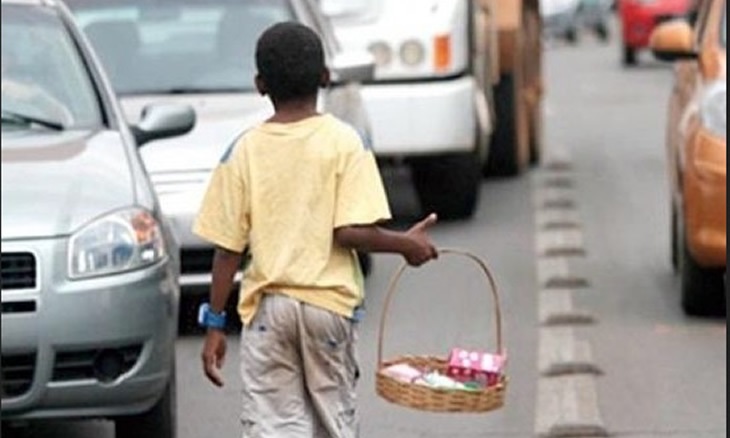Mozambique: Military solution won't solve Cabo Delgado problem - Catholic Church
Mozambique: Lack of aid hinders children’s return to school

FILE - For illustration purposes only. A Mozambican child working. [File photo: TVM]
Over 200,000 children are without school amid the crisis in northern Mozambique, and humanitarian organisations lack support to meet this year’s targets, an official source told Lusa on Wednesday.
“Some €23 million would be necessary to meet all humanitarian needs in education” in 2022 in Mozambique, particularly in the north, explained a source from the United Nations Children’s Fund (Unicef) in response to questions posed by Lusa.
ALSO READ: Child labour: The boys working as porters at Nampula markets – Ikweli
However, by the end of the first quarter, the education cluster had only 3.3% of that amount (the cluster includes two Mozambican organisations, 14 international organisations and two UN agencies, all on the ground) in a global scenario where the pandemic and now Ukraine are priorities for several donors.
Additional funds (in an unspecified amount) arrived in April, but “given the current context, it will be a challenge to achieve the goals to which the team and partners are dedicated every day,” according to the same source.
The provinces of Cabo Delgado, Niassa and Nampula are facing the consequences of several years of bitter insurgency, cyclones and the Covid-19 pandemic, causing a humanitarian crisis with almost 800,000 displaced people in which underfunding cuts across all areas, from food support to education.
There is a double crisis: on top of the humanitarian crisis, there is a funding crisis for organisations trying to deliver aid.
“The shortage of funds available for humanitarian interventions has worsened since the Covid-19 pandemic”, as it was a “global emergency”, and currently “, the conflict response intervention in Ukraine is essential for several donors”, explained the same source.
In Mozambique, the €23 million budgeted for education this year “includes the sector’s needs for the whole country, including the rehabilitation of school infrastructures.
In Cabo Delgado province alone, devastated for four and a half years by an armed insurgency, 114 classrooms have been destroyed, and less than half of the 386 schools affected have opened for the 2022 school year – because in addition to the destruction of infrastructure, accessibility and security problems persist in several districts.
Education services are under intense pressure with almost 30,000 displaced children” who fled conflict zones “attending host community schools”.
After buildings are rebuilt, “support is needed to motivate children to return to school, to ensure they are safe spaces to learn, and the traumas students and teachers have faced in the past year must be addressed while maintaining the quality of education,” reads an analysis of the situation made by the group in January and February.
In this scenario, the actions on the ground “are planned according to the funds available,” concludes a UNICEF source.
Cabo Delgado province is rich in natural gas but has been terrorised since 2017 by armed rebels, with some attacks claimed by the extremist group Islamic State.
There are 784,000 internally displaced people due to the conflict, according to the International Organization for Migration (IOM), and around 4,000 deaths, according to the ACLED conflict registration project.
Since July 2021, an offensive by government troops with Rwandan support, later joined by the Southern African Development Community (SADC), has allowed areas where there was a rebel presence to recover, but their flight has provoked new attacks in other districts used as a passage way or temporary, refuge.












Leave a Reply
Be the First to Comment!
You must be logged in to post a comment.
You must be logged in to post a comment.